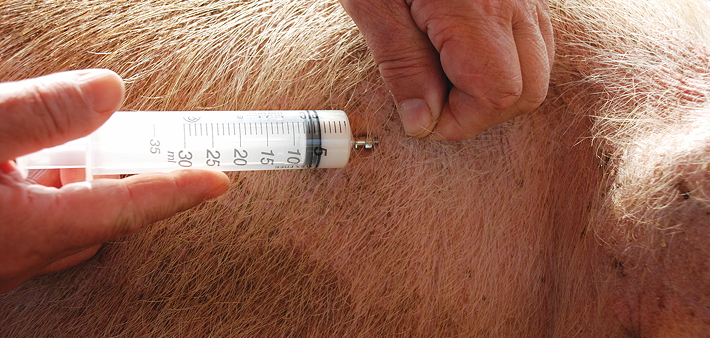The UK veterinary and pharmaceutical sectors have broadly welcomed long-awaited plans to modernise the Veterinary Medicines Regulations.
Defra said the plans aim to make the regulations more effective and maintain the UK as an attractive place to develop and market veterinary medicines. The measures also aim to further tackle antimicrobial resistance and provide improved clarity and consistency, meaning more certainty for those involved in the health and welfare of animals.
The Veterinary Medicines Regulations 2013 set out the controls on the marketing, manufacture, distribution, possession, and administration of veterinary medicines and medicated feed.
A government response, published by the Veterinary Medicines Directorate on Friday, following an eight-week public consultation last year, includes plans to modernise the Regulations with requirements that reflect developments in the industry and reduce regulatory burden where possible.
Defra said updates include encouraging the submission and marketing of new and innovative products to help increase medicine availability and introducing further measures to help reduce the development and spread of antimicrobial resistance.
But there is also relief across the industry at some of the proposals which will not be taken forward, including changing the classification for new immunological veterinary medicines so they can only be prescribed by vets; changing prescribing requirements for vets; and only allowing vet prescription-only medicines to be advertised to animal keepers if they are immunological medicines.
The National Office of Animal welcomed the measures. It said the UK animal health industry ‘needs a robust, up-to-date regulatory process to produce the veterinary medicines necessary to protect and improve animal health and welfare in the UK’.
Dawn Howard, NOAH’s Chief Executive said: “It is good to see that, in a number of key areas that we felt would adversely impact animal health and welfare, Government has listened and responded to stakeholder concerns.
“For example, we welcome the modifications made to the labelling requirement proposals for veterinary medicines and that POM-V medicines other than antimicrobials can continue to be advertised to professional keepers of animals.
British Veterinary Association President Anna Judson said: “We’re pleased to see that the Government has listened to the concerns we raised in our consultation response last year.
“These are reflected in amendments including the appropriate use of the cascade, the prescribing of medicated feed, and a commitment towards better regulation of online pharmacies.”
Defra said that, overall, the proposals in the consultation received widespread support from the veterinary medicines sector and the majority will be implemented.
RUMA Agriculture broadly welcomed the measures. Its chair, Cat McLaughlin, says: “Last year, working with our members, we submitted a detailed response to the consultation and are pleased that the feedback has been carefully considered. This will be an important piece of legislation that will further protect and improve animal health and welfare in the UK.
“It is reassuring to see that certain concerns raised in the consultation have been acknowledged and the proposals amended. For example, the proposal regarding immunological products (such as vaccines) which would have restricted them to a POM-V classification has not been adopted.
“This means these important preventative medicines can continue to be either POM-V or POM-VPS subject to the usual assessments and procedures. Likewise, the VMD has decided not to implement the proposed restriction on the advertising of POM-V and POM-VPS immunological medicines (such as anti-parasiticides) to professional keepers of animal products.
“The last thing anyone wants is for legislation to adversely affect animal health and welfare which is why it has been so important that the open consultation took place and that the comprehensive feedback has been properly considered.”
Abi Seager, VMD chief executive officer said: “We are pleased with the support for the proposed changes.
“Where the feedback identified disproportionate impacts on certain businesses or unintended consequences on animal health and welfare, we have acted and amended our proposals.
“We look forward to continuing engagement with all our stakeholders and supporting them through the implementation of the upcoming changes.”




